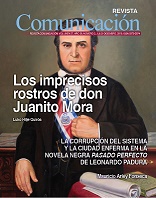The teaching-learning process in heterogeneous groups from the Metropolitan University of Ecuador
Main Article Content
Abstract
The teaching-learning process in heterogeneous groups from the Metropolitan University of Ecuador
The structure of the teaching-learning process in the Fundamentals of Marketing subject includes students from different careers, a complex situation for the teacher, since its heteronomous nature implies they learn and develop skills with a different mindset, creating a gap in the learning achieved by the students. This group composition fits that of other reference studies where heterogeneous students are defined as multiracial and of different ages. Therefore, the objective of this article is to propose a learning organization model for the Fundamentals of Marketing subject. A “learning group model” is proposed utilizing the systemic structural method and modeling, based on cooperative learning didactic strategies and experiences. The contents and the initial diagnosis in the model are taken into account to organize students with different careers into subgroups, with the teacher guiding the process by assigning tasks to reach an integrating product. As a result, the students develop 39 the topics as a whole, carry out tasks with a multi-career focus, and transmit knowledge and their own experiences leading up to the presentation of the integrating product. In conclusion, the “learning group model” derives in organizational actions, which fosters better learning results and skill development in the students. The ideas of Hernández (2013), Madariaga (2015) and García (2016) regarding cooperative and collaborative learning, and use of coherent teaching activity planning are corroborated.
Article Details
This work is licensed under a Deed - Atribución/Reconocimiento-NoComercial-SinDerivados 4.0 Internacional - Creative Commons.
Política de acceso abierto
Esta revista provee acceso libre inmediato a su contenido bajo el principio de que hacer disponible gratuitamente investigación al público apoya a un mayor intercambio de conocimiento global.
Ser una revista de acceso abierto, implica que todo el contenido es de libre acceso y sin costo alguno para el usuario o usuaria, o institución. Las personas usuarias pueden leer, descargar, copiar, distribuir, imprimir y buscar los artículos en esta revista sin pedir permiso previo del editor o el autor con fines educativos y no de lucro.
La única limitación de la reproducción y la distribución, y el único papel de los derechos de autor en este ámbito, debe ser dar a los autores el control sobre la integridad de su trabajo y el derecho a ser debidamente reconocidos y citados. (Budapest Open Access Iniciative)
LICENCIAMIENTO Y PROTECCIÓN INTELECTUAL
Todos los artículos publicados, están protegidos con una licencia Creative Commons 4.0 (Deed - Atribución/Reconocimiento-NoComercial-SinDerivados 4.0 Internacional - Creative Commons) de Costa Rica. Consulte esta licencia en: https://creativecommons.org/licenses/by-nc-nd/4.0/deed.es
Las licencias constituyen un complemento al derecho de autor tradicional, en los siguientes términos:
- Se impide la obra derivada (es decir, no se puede alterar, transformar ni ampliar el documento).
b. Siempre debe reconocerse la autoría del documento referido.
c. Ningún documento publicado en la Revista Comunicación, puede tener fines comerciales de ninguna naturaleza.
Mediante estas licencias, la revista garantiza al autor que su obra está protegida legalmente, tanto bajo la legislación nacional como internacional. Por tal motivo, cuando sea demostrada la alteración, la modificación o el plagio parcial o total de una de las publicaciones de esta revista, la infracción será sometida a arbitraje internacional en tanto que se están violentando las normas de publicación de quienes participan en la Revista y la Revista misma. La institución afiliada a Creative Commons para la verificación en caso de daños y para la protección de dichos productos es el Instituto Tecnológico de Costa Rica, mediante la Editorial Tecnológica y la Vicerrectoría de Investigación.

